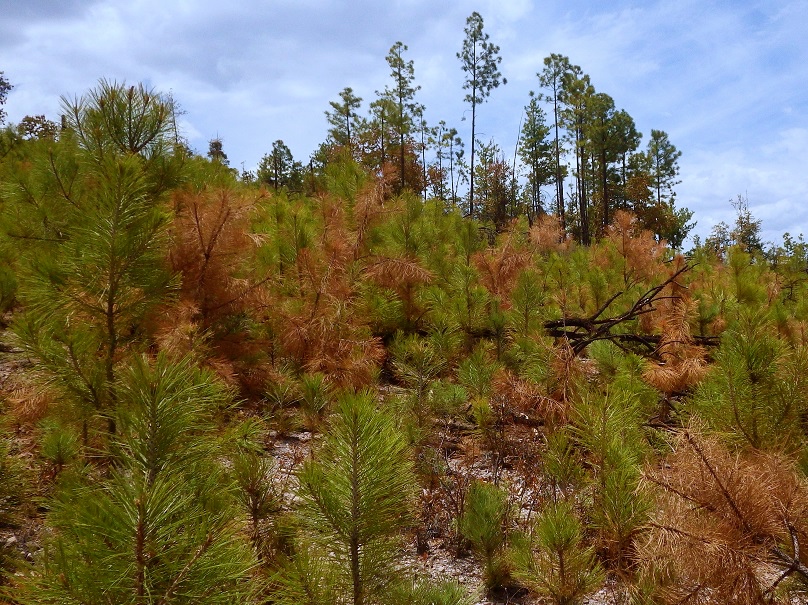The genus Antiteuchus comprises 43 known species worldwide, and feeds on several species of pines in the highlands of Chiapas, Mexico.
Its presence has been observed in high densities there, and is related to the decline of forest plantations.
In order to provide timely attention to the pest problem that occurs in Chiapas, the National Forestry Commission (CONAFOR,) signed agreements for the phytosanitary attention of the pine bug sucking insect Antiteuchus in the Francisco I. Madero and the Bienes Ejido Communal San Juan Penana, both in the municipality of Las Margaritas. CONAFOR staff will work to reduce the plague to ecologically acceptable levels.
The foregoing derived from the fact that in the period 2019-2021, the Forestry Development Promotory in Chiapas of CONAFOR carried out a terrestrial monitoring with which it obtained a diagnosis of an area of 1,042.5 hectares with the sucking insects.
For this reason, CONAFOR allocated resources from the Phytosanitary Treatments support concept of the V Forest Protection component of its Support Program for Sustainable Forest Development, which will address the problem of sucking insects of the genus Antiteuchus in Pinus oocarpa trees in an area of 293 hectares belonging to these ejidos.

Sucking insects are characterized by feeding on the sap of pine trees, which is why they cause yellowing of the foliage, and in massive attacks they cause partial or total defoliation, causing weakening of the tree and in extreme cases death.

The adults of the Antiteuchus sucking bugs typically first appear by April of each year, and reach their greatest numbers in May. Afterwards, adults decrease gradually and are undetectable by November. Egg masses are laid on primary branches, and on the female strobili of pines. Following egg-hatching, the female remains with its brood, presumably for maternal care.
For the combat and control of this causal agent, CONAFOR support will be derived so that members of the ejido carry out terrestrial spraying with Deltamethrin in the early hours of the day, on the shafts of the infested pines. Later they will follow up and recognize the population levels of the pest species in order to monitor their reduction to ecologically acceptable levels in this forest ecosystem.
It should be noted that the beneficiary ejidos were selected for their correct application of the support, and compliance with the provisions contained in the notification as well as the obligations and requirements.

